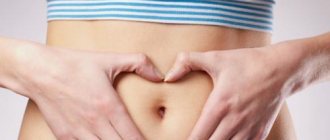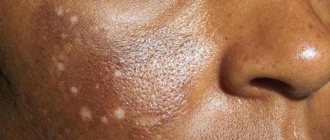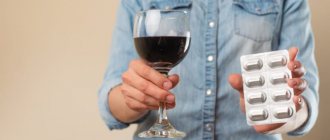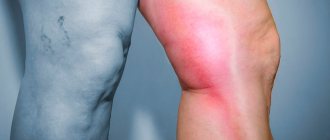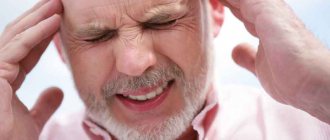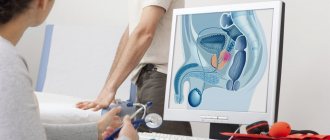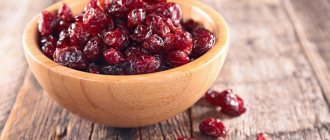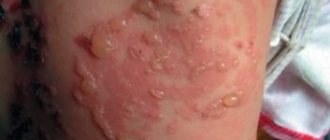We often don't think about how much water we consume. There is another extreme - people painstakingly monitor the regular replenishment of fluid in the body and try to always keep some kind of soft drink with them.
The truth is that most healthy people rarely experience severe dehydration and even more rarely experience water poisoning.
Numerous metabolic mechanisms of our body work 24 hours a day to maintain a constant water-salt balance within us - they control both the flow of water into the body (including the feeling of thirst) and its removal from the body.
But it should be noted that certain groups of the population are indeed at increased risk of dehydration, these primarily include children and the elderly, athletes, as well as those who are prone to loose stools (with irritable bowel syndrome, inflammatory bowel diseases, chronic pancreatitis and others gastrointestinal diseases).
In carrying out daily activities, our body uses a certain volume of water daily primarily to transport active beneficial molecules and remove toxins from the body. The volume of water used may vary depending on environmental conditions (for example, dry hot or humid cool air), as well as the needs of our body. For example, a woman's body during menstruation tends to retain water, which can slightly increase body weight and lead to some swelling, most often in the legs. This is a physiological, natural process that stops after the necessary systems are activated and excess fluid is removed.
People who like to eat salty foods retain more fluid in their bodies. This is caused by excess sodium intake. It is for this reason that in any pathological conditions accompanied by edema, it is recommended to limit the consumption of salt in food. This also applies to people with high blood pressure - limiting salt intake allows you to avoid pressure surges, and sometimes reduce the amount of antihypertensive medications taken.
How does thirst quenching work?
Water consumption is regulated through behavioral mechanisms - through the development of a feeling of thirst or satiety. When a person loses a lot of water, but the concentration of electrolytes in the body remains the same, the blood becomes excessively “viscous”. The blood supply to the salivary glands is restructured, which leads to a decrease in salivation, as a result of which the person experiences a feeling of dry mouth and thirst. The hypothalamus determines the characteristics of the water-salt composition of the body and sends signals that regulate urination and sweating. As a result, the excretion of water from the body through sweat, urine and stool is reduced, which allows you to avoid dehydration for some time.
Adiarine Regidro
The drug contains glucose, sodium citrate, sodium chloride, potassium chloride, silicon dioxide, zinc amino acid chelate. A good drug for preventing dehydration and restoring electrolyte levels during diarrhea. It is the zinc in Adiarina Regidro that helps to quickly stop diarrhea. The product is ideal for acute gastroenteritis in children, reducing mortality due to dehydration due to diarrhea by 93%. Also, Adiarin Regidro protects the intestinal mucosa from the penetration of toxins and bacteria into the blood. The contents of the sachet should be dissolved in a glass of boiled water at room temperature. You need to take the anti-dehydration medication until the diarrhea stops.
Adiarine Regidro
Jadran-Galenski Laboratories, Croatia
Adiarine Regidro is a drug for the prevention of dehydration and rapid replenishment of water and electrolyte losses due to diarrhea.
Thanks to its zinc (Zn) content, Adiarin Rehydro reduces the duration of diarrhea. from 281
178
- Like
- Write a review
Risks of dehydration
Dehydration is not only uncomfortable for a person, but can also have detrimental consequences. When the water content in the body decreases, attentiveness, the ability to perceive and process information are impaired, mood worsens, headaches and fatigue develop. Significant dehydration can lead to significant disruption of the body's functioning, even death.
The first sign of dehydration is thirst.
In this way, the body gives a signal to a person that it is necessary to immediately replenish water reserves in the body. Thirst usually develops when the water deficit is approximately 200–400 ml. The protective mechanism prevents further loss of fluid from the body: sweating and urine formation are reduced. If a person is in a hot atmosphere, this can lead to overheating of the body and the development of heat stroke. That is why it is important to listen to your feelings and when a feeling of thirst arises, do not delay in satisfying it.
In older people, the feeling of thirst may be dulled due to age-related changes in the body and especially in the nervous system. Therefore, unless contraindicated, doctors usually recommend that older adults regularly monitor and drink water throughout the day to avoid dehydration. Some older people, unfortunately, avoid drinking liquids because they don’t want to have to make unnecessary trips to the restroom. This happens especially often before going to bed. However, this approach can be detrimental to health and quality of life .
Oralit
This anti-dehydration drug is not as balanced as the previous one, but it also works great to restore fluid balance. Ingredients of Oralit: table salt, sodium bicarbonate, potassium chloride, glucose. The product contains the most necessary components to relieve first or second degree dehydration. Oralit is suitable for children who do not want to drink on their own - in small portions (10-15 ml) every 15 minutes. It can be taken from a spoon or through a syringe without a needle. A child needs about 1 glass of solution per kilogram of weight per day, and the dosage cannot be increased. If a newborn is dehydrated, the solution prepared according to the instructions must be diluted twice more with water, because the preparation contains too much sodium for the baby.
Oralit
Oralit is a rehydrating agent for normalizing electrolyte and energy balance. Method of administration: oral. Reduces or prevents dehydration. Effectively restores lost potassium, sodium and water. Used to restore fluids and lost electrolytes during diarrhea. Normalizes acid-base and water-electrolyte balances disturbed by dehydration. Metabolic acidosis is maintained by glucose through the absorption of citrates and salts.
72
- Like
- Write a review
What causes thirst
The following factors increase the need for water:
- alcohol consumption
- increased amount of fiber in the diet
- certain diseases associated with water-salt imbalance, such as diabetes and kidney disease
- being on an airplane or in rooms with forced air circulation
- staying in mountainous areas
- hot and dry weather
- increased consumption of proteins, salt and sugar, carbohydrate deficiency (ketosis)
- taking diuretics
- physical exercise
- pregnancy or breastfeeding
- diarrhea, vomiting
- rise in body temperature
- surgery, blood loss, or burns
- infancy or old age.
Let us illustrate one of the above points with an example. It is known that active sports training significantly accelerates metabolic processes in the body, which is accompanied by increased sweating. All this leads to a significant increase in water demand. When training takes place in a hot atmosphere or in the sun, the need for water is even higher. For example, during intense physical activity, an athlete can additionally lose about 1.5–2 liters of water per hour.
Prevention
To prevent dehydration of the body, the following prevention rules should be followed:
- Do not practice hard work and serious physical exertion during the hot season.
- If you stay in the heat for a long time, periodically rest in a cool place and drink plenty of fluids.
- Do not abuse alcohol.
- Carry a water bottle with you in summer.
- Wear light clothing made from natural fabrics in summer.
- Do not take diuretic drugs uncontrollably.
- Eat right and maintain a rational drinking regime.
Debunking the Myths
Many publications on the Internet contain myths regarding dehydration:
Myth No. 1.
To moisturize the skin, fight wrinkles and improve the condition of the skin, you need to drink 8 cups of water a day.
The fact is that drinking additional fluid by people who are healthy and already drink enough water does not improve the condition of the skin. The body will remove excess fluid naturally, which will not affect the elasticity of your skin. It is correct to assess the fluid requirement of your body, taking into account the intensity of physical activity and the presence of any pathological processes in the body, and then select moisturizing creams with a cosmetologist.
Myth No. 2.
In addition to drinks, you should drink plain water to avoid dehydration.
Medical research shows that the lack of water can be compensated not only with ordinary water, but also with juices, herbal teas, soups, broths, etc. However, in case of significant dehydration it is necessary to drink water , as this will quickly restore the water-salt balance in the body without consuming additional calories.
Myth No. 3.
Darkening of urine clearly indicates dehydration.
Indeed, when there is a lack of water in the body, the excreted urine concentrates and it becomes a little darker. However, dark urine can also occur when eating certain types of food, such as beets, asparagus and other foods, and can also be a symptom of liver and kidney diseases.
Myth No. 4.
Experts have established the exact daily volume of water a person needs.
Unfortunately, there is no magic exact dose that is equally good for everyone. We are all unique and live our own unique lives. Although researchers are still continuing to work to determine the optimal amounts of water consumption for both healthy people and various groups of patients.
Regidron
Probably the most commonly prescribed drug for dehydration. The powder contains: sodium chloride, potassium chloride, sodium citrate and dextrose (D-glucose). The ideal balance of sodium and glucose is maintained here, so Regidron is considered the best remedy for absorbing water and reducing the load on the intestines. The drug also contains sodium citrate (citric acid salt), which improves energy metabolism. "Regidron" not only restores the water-electrolyte balance, but also the acid-base balance. The product is indicated for diarrhea, moderate vomiting, and severe sweating. It’s easy to prepare the solution – you just need to dissolve a bag of powder in 1 liter of cool boiled water.
Regidron
Orion Pharma (Orion Pharma), Finland
- oral rehydration and prevention of dehydration in acute diarrhea accompanied by mild to moderate dehydration.
from 18
601
- Like
- Write a review
The entry and exit of water from the body
Every day, water enters our body with drinks and food, and a certain amount of water is formed during metabolism (for example, when burning fat). On average, the human body receives about 1450–2800 ml of water daily:
- drinks (550–1500 ml)
- food (700–1000 ml)
- metabolism (300 ml).
And with the help of the skin and lungs, gastrointestinal tract and urinary system, the same volume of water (1450–2800 ml) is removed from the human body every day:
- urine (500–1400 ml)
- evaporation by skin (450–900 ml)
- exhaled air (350 ml)
- stool (150 ml).
However, when the intensity of the body’s work changes (physical activity, various diseases), our body needs a larger volume of incoming fluid.
How much should I drink daily?
To answer this question, “banal” and publicly available tests will help you - a clinical blood test with determination of hematocrit, a general urine test with determination of specific gravity.
For a more informative assessment of the presence of fluid in the body, bioimpedance measurement will help - based on the results of the procedure, you will see how much fluid, fat mass and fat-free mass, including bones, muscles and internal organs, are contained in your body.
Based on the results of these examinations, the doctor will be able to accurately say whether there is a need to correct the drinking regime and more.
Classification
Depending on the degree of dehydration, hypohydration is divided into the following types:
- Mild degree – reduction in body weight by no more than 5%. In this state, a person feels thirsty and may experience slight mental anxiety. The pulse is normal or slightly increased, the mucous membranes are moist.
- Average degree – weight loss by 6-9%. The mucous membranes are dry and sticky, the eyes are sunken. Tachycardia is noted , while the pulse voltage decreases. Psycho-emotional disorders are also more pronounced. There may be restlessness or lethargy. Blood pressure decreases or increases by about 20%.
- Severe – weight loss of 10% or more. Mental retardation is noted. The eyes become very sunken, the skin turns blue, and the temperature of the skin drops. Blood pressure drops significantly, pulse quickens. Breathing is deep and frequent. The person may lose consciousness. Coma and death are possible.
According to the concentration of blood electrolytes, the following types of exicosis are distinguished:
- Hypertensive dehydration – against the background of dehydration, a lack of water prevails. Develops when a person loses electrolyte-free water, or when water loss is greater than electrolyte loss.
- Hypotonic dehydration – against the background of dehydration, a lack of electrolytes predominates. As a result, the osmolarity of the extracellular fluid decreases.
- Iso-osmolar dehydration – there is a proportional loss of water and minerals.
What kind of water is best to drink?
Store shelves and catering chains offer us a fairly extensive selection of drinks.
Carbonated drinks often attract our attention It must be remembered that their pleasant taste hides insidious excess calories and sugar. That's right - read the packaging and evaluate each time why I buy and drink this drink.
This problem is especially relevant for developed countries, because many people drink drinks not to quench thirst, but due to “close availability” and to obtain pleasant taste sensations, stimulation of the nervous system with caffeine and sugar, or for relaxation due to alcohol. The sports industry also invented a new type of soft drink: sports drinks. However, most experts are very skeptical about the benefits of sports drinks for maintaining fluid balance and improving training results.
Fruit juices contain fruit pulp and a significant amount of water, which also quenches thirst. It is correct to consume natural freshly squeezed juices, if necessary, with the addition of clean water. Industrially produced juices may contain sugar and preservatives, the frequent consumption of which can have a harmful effect on health.
In order to maintain well-being and health, it is recommended to drink clean water, low-mineralized water (up to 2-2.5 grams of minerals per liter), weak black and green tea, herbal teas (chamomile, peppermint, fireweed). Remember that drinking green tea with milk has a mild diuretic effect and will help save you from feeling puffy and heavy in your legs.
Gastrolit
"Gastrolit" contains sodium chloride, potassium chloride, sodium bicarbonate, glucose. In addition, the composition contains chamomile, which has an antimicrobial effect and “calms” the gastrointestinal mucosa during intestinal infections. To prepare a rehydration solution, you need to dissolve a packet of Gastrolite in a glass of hot water and wait until it cools down - you get a medicinal drink with an optimal set of electrolytes.
Gastrolit
TEVA, Ukraine
The drug replenishes water and electrolyte losses resulting from acute diarrhea and relieves metabolic acidosis. Chamomile extract additionally has an anti-inflammatory, antiseptic and antispasmodic effect on the intestines.
214
- Like
- Write a review
In children
When talking about what dehydration is in children, it should be borne in mind that for young children this condition is very dangerous. Long-term toxicosis with exicosis in children can even lead to death. Therefore, dehydration in a child must be treated immediately.
Most often, this condition is observed in acute infections, respiratory diseases, prolonged diarrhea, and overheating.
If we are talking about an acute respiratory infection, then in this condition the baby experiences a high temperature and, as a result, active sweating. As a rule, severe dehydration is not observed in this condition. However, it is important to replenish lost fluid by giving your child plenty of warm fluids.
In acute intestinal infections, water loss occurs quickly due to vomiting and diarrhea. This condition is very dangerous for infants. For viral infections, it is important to actively combat dehydration. For bacterial infections, such actions are supplemented by the use of antibiotics .
When discussing the dangers of dehydration in children, it is necessary to take into account that the most dangerous thing in such a situation is the development of the following symptoms:
- Sagging and thinning of the skin.
- Convulsions.
- Impaired consciousness.
- Temperature drop.
If we are talking about a baby, then to replenish fluid losses, it should be applied to the breast as often as possible. You can feed your baby with boiled water.
Older children should receive oral rehydration solutions.
If your baby's condition is serious or he refuses to drink, it is important to immediately call emergency help.
What else can you do to help your child?
Children who are dehydrated usually refuse to eat. You should not feed your child if he categorically refuses. As soon as the baby feels a little better, he will ask for food himself. Cereals are considered optimal for nutrition. Porridge with milk diluted half and half with water. You can also offer your baby steamed cutlets, stewed vegetables, mild broths, dryers and crackers. Categorically exclude from the diet sweet carbonated drinks, fatty and fried foods, raw fruits and vegetables and whole milk.
Food should be offered to the child in small portions, at short intervals. In my practice, it often happens that a baby who is feeling better asks for large amounts of food at once. Parents rejoice at the new appetite. As a result, the child is overfed. This provokes a new wave of malaise, vomiting and repeated dehydration.
It is very important to provide an optimal environment. A sick child's room should be cool. The hotter it is, the more water is lost. Dehydration increases.
You should not give your child antiemetic and antidiarrheal drugs on your own. These medications can only be used as prescribed by a doctor and under his strict supervision.
Online consultation with pediatrician Olga Nikolaevna Tekutyeva
Registration online
During the consultation, you will be able to voice your problem, the doctor will clarify the situation, interpret the tests, answer your questions and give the necessary recommendations.
Nutritionist advice
Immediately after waking up, drink 1-2 glasses, and then set an alarm for every hour with the note “drink a glass of water.”
If you don’t like pure water yet, feel free to add lemon slices, mint sprigs, any berries and fruits, cucumbers, raspberries, orange, lime.
These simple tips will help you stay hydrated even in extreme heat and other situations.
We warn you that self-medication is unacceptable! In case of any health problems, you must consult a specialist.
Establishing diagnosis
Dehydration may be suspected in cases of persistent vomiting, diarrhea, or fluid loss through urine or skin. Symptoms associated with severe dehydration include pale, cool and clammy skin, rapid heart rate and breathing, and severely low blood pressure. Some people may also feel restless and complain of thirst. The skin on the knees and elbows may be patchy. If urine is produced, it will be dark yellow or amber in color.
The diagnosis of dehydration is usually based on symptoms and physical examination.

